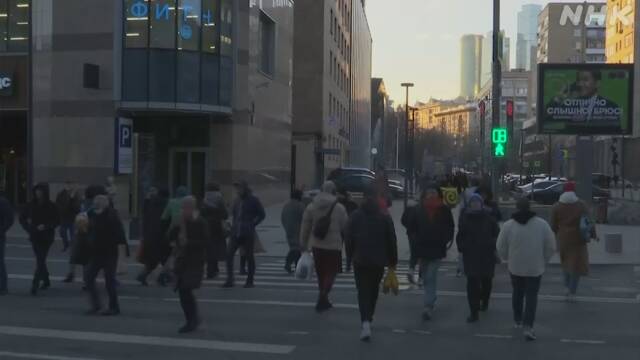The United States and European countries have announced that they have agreed to implement measures to keep certain Russian banks out of an international payment network called SWIFT.
What is SWIFT, an international payment network?
What is the impact of shutting out Russian banks?
I have summarized the details.
SWIFT System used for trade settlement and remittance
SWIFT is a payment network operated by SWIFT = "International Interbank Communication Association" headquartered in Belgium.
It is a system used by more than 11,000 financial institutions in approximately 200 countries and regions for settlement and remittance of cross-country trade, and handles 42 million remittance information per day.
The settlement amount is 5 trillion dollars a day, which is about 575 trillion yen in Japanese yen.
The United States has often included exclusions from SWIFT in its economic sanctions, as companies in the country will have difficulty closing trade when SWIFT becomes unavailable.
The aim is to have a big impact on the Russian economy by shutting out
Western countries aim to keep Russian banks out of this network and make it difficult to settle trade, which will have a major impact on the Russian economy.
In 2012, Iran was excluded from SWIFT due to economic sanctions in Europe and the United States, and the growth rate of Iran's economy, GDP = gross domestic product, fell to minus 7.4%, resulting in a serious economic downturn.
According to the explanations of Western countries, this sanction includes Russian banks that have already been sanctioned in response to the situation in Ukraine, and it is expected that major banks will be targeted.
It also regulates that the central bank of Russia cannot weaken its effects by utilizing foreign currency reserves to ensure the enforcement of sanctions.
Exclusion of Russia will affect countries around the world
However, there are concerns that strong sanctions on Russia will rebound its impact on countries around the world.
It has been pointed out in the market that the prices of crude oil and natural gas, which have already remained high, may rise further, and for European countries that import a lot of natural gas from Russia, the import price will be settled. If there is a delay, the supply may be affected.
High-ranking U.S. government officials are considering measures to avoid such a blow as much as possible and will implement sanctions within a few days, which is effective against Russia while suppressing the impact on the European economy. The focus is on being able to apply pressure.
On the other hand, there are warnings that this sanction will trigger Russia to strengthen its financial ties with China and strengthen the construction of another network.
US Biden administration official "It is the result of choosing war"
A senior U.S. Biden administration told reporters, "It's the result of Putin's choice of war."
Regarding the banks to be excluded from SWIFT, he said, "Banks that have already been sanctioned by the West will be considered first."
He also said that this measure needs to be ensured that it does not affect Russia and the countries that have energy-related transactions. "We know through which banks most energy-related transactions are carried out. And you can choose any of those places. "
Meanwhile, the official said it is unlikely that China would help mitigate the impact Russia suffers.
Germany and others change their cautious stance
So far, some European countries have been cautious about measures to keep Russian banks out of SWIFT, and discussions have continued.
The United Kingdom has called for countries to work together, but many of the countries that depend on Russia for importing natural gas are cautious because of concerns about energy procurement.
However, Germany, which had been cautious until now, posted on Twitter jointly by Foreign Minister Annalena Baerbock and Minister of Economy and Climate Protection Harbeck on the 26th, saying that "a targeted functional restriction is necessary" and will keep pace with each country. Was shown.
Italy and Hungary have also turned to support.
As the international community calls for stricter sanctions against Russia's unilateral military invasion, countries such as Germany have turned to support, which seems to have led to a Western agreement.

